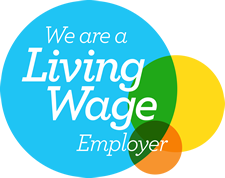
Insights
Helping not-for-profit organisations develop and sustain
the highest levels of employee and volunteer engagement

Insights
 When you google “career development in international development” you find a lot of articles about how to start a career in international development and what skills are needed in this “competitive sector” but next to nothing on how you might be able to progress in your career when you are in the sector.
When you google “career development in international development” you find a lot of articles about how to start a career in international development and what skills are needed in this “competitive sector” but next to nothing on how you might be able to progress in your career when you are in the sector.
We looked at the results for each of our benchmark questions for 52 INGOs undertaking engagement surveys in 2015-2019. The question with the fifth lowest median score was “This organisation provides people with good prospects for promotion or advancement” (median 50% positive). The four questions with lower median scores were all about pressure, stress, workload and reward.
I think it would not be surprising for many people in INGOs that reward and wellbeing are areas with lower scores, but I wonder whether it is more surprising that prospects for promotion or advancement has such a low median score? Could it be that organisations in what is known as a competitive sector to break into do not feel the need to invest heavily in career development for their staff? We also know that overall engagement scores in the INGO sector tend to be high (the median score for “I would wholeheartedly recommend this organisation to others as a good place to work” is 83% positive) and there is very high engagement with the mission. Could this translate to a willingness for staff to stay at an organisation even when they feel their career prospects are not great?
Of the 52 organisations we looked at, 23 asked the question “This organisation provides people with good prospects for promotion or advancement”. The highest positive score was 88% and the lowest was 27%, so we can see there is a high degree of variation between how organisations do on this question.
When I worked in the INGO sector, we got feedback in the Staff Survey that people thought career progression could be improved and that recruitment to roles did not always seem open and transparent.
Following further consultation with the teams, we looked at improving two areas related to career progression. These were:
I am sure that there are many other ways to approach this, but I found that it was valuable to have discussions with my team about how we could improve in this area, in order to allow people to feel it was an area we were taking seriously and that we valued them as individuals and wanted to give them opportunities in their careers.
It would be great to hear more examples from organisations (both INGOs and other organisations) of initiatives you have introduced on this topic. Call me on +44 (0)1865 263720 or email catherine.wearden@agendaconsulting.co.uk.
Agenda Consulting
Belsyre Court
57 Woodstock Road
Oxford
OX2 6HJ
UK
Company No: 4509427
